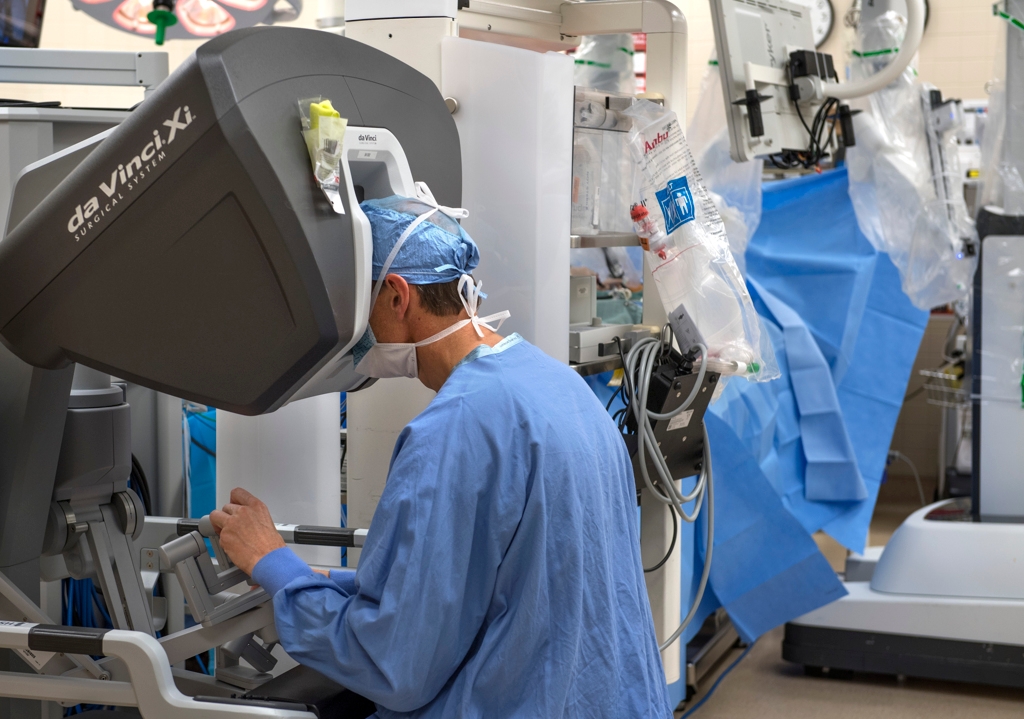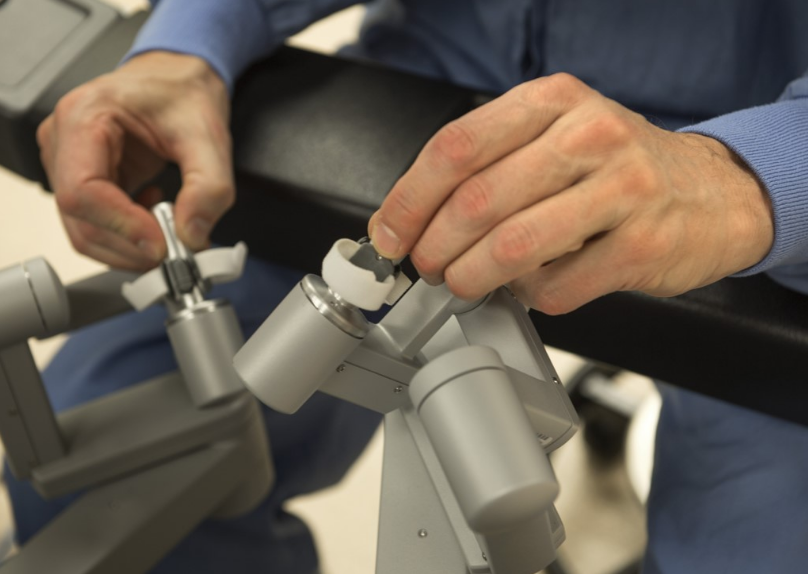Mitral valve surgery
Mitral valve repair or replacement may be performed through traditional sternotomy, as well as other minimally invasive means including mini thoracotomy and robotic assisted surgery.
In 2023, Corewell Health performed:

96 open isolated mitral valve repair and replacements

18 combined CABG + mitral valve repair or replacements
Robotic mitral valve surgery
Corewell Health has a robust minimally invasive cardiac surgery program utilizing the Intuitive da Vinci Xi robot, an amazing computer-enhanced robotic assistance system. We have been performing robotic heart surgeries since 2008. Our cardiothoracic surgeons offer a wide variety of these procedure in the largest program of its kind in West Michigan.
In 2023, 65% of our mitral valve repairs were performed robotically compared to 19.4% nationally.
The combined capabilities of precision control, 3-D vision and minimally invasive entry allow eligible patients to spend less time recuperating and offer a faster return to a normal lifestyle. Robotic assistance allows qualifying patients to have smaller incisions, eliminating the need to split the breastbone.

Minimally invasive surgery can be a safe, effective alternative to open heart surgery.

Indications for robotic mitral valve surgery include:
- Normal cardiac function
- Low risk for traditional cardiac surgery via sternotomy
- No underlying lung, cerebrovascular or peripheral vascular disease
- Normal body habitus
Watch a video about the da Vinci Xi Surgical System or learn more about Corewell Health robotic surgery.
Treatment options



Make an Appointment
Contact us to learn how to take the next step and get an appointment with one of our specialists.
